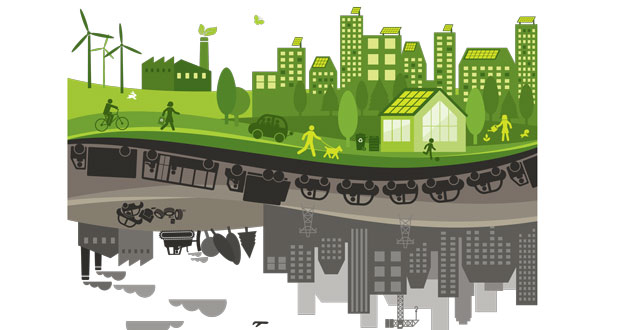Analysis of today’s ONS Business Insights and Conditions Survey (BICS) by Reconomy Group, a leading global circular economy specialist, has revealed over a third of businesses are yet to take meaningful action on reducing emissions.
Despite the climate emergency and strengthening focus on business’ steps to protect the environment, the ONS data found that 35 per cent of companies admitted that they were not doing anything to cut emissions and waste.
When it came to what companies were doing to tackle emissions, switching to LED bulbs (32 per cent) was the most popular action. Tackling energy usage was also a priority with over a quarter (27 per cent) adjusting heating and/or cooling systems, 14 per cent installing smart meters and eight per cent insulating buildings.
Growing demand for infrastructure to support electric vehicles was evidenced by the eight per cent who said they were electrifying their vehicle fleet and five per cent installing charging points.
Sector breakdown
The sector breakdown provided by the ONS revealed that the professional, scientific and technical services sector had the biggest opportunity for improvement when it came to limiting their emissions, with 42 per cent not implementing processes or technology that could accelerate their journey to net zero.
ONS added there is also progress to be made in other industries with similarly high proportions still to kickstart meaningful carbon-reduction change across the transportation and storage (41 per cent), administrative and support services (41 per cent), and construction (38 per cent) sectors.
Commenting on the data, Diane Crowe, Head of Sustainability at Reconomy Group, said: “Despite making positive progress in climate commitments and activity to get net zero, it is evident that businesses in the UK still have the chance to make further meaningful change.
“Accelerating this shift to a more circular economy will be vital in our transition to more sustainable business practices that drive growth while protecting our environment and finite resources.
“Over the past year we have witnessed a step change in attitudes towards energy usage – from individual households to multinational firms – as the surge in costs following the war in Ukraine drives radical change. The adoption of greener energy sources is evidence of our capability to push forward with these critical measures and we need to see more proactive steps to achieve our net zero ambitions.”
Are you confident that your contractors and suppliers meet ethical labour standards and human rights obligations?
For many FM services, managing multiple third parties in the supply chain can be a complex challenge. And, in a sector that relies heavily on migrant workers and 65 per cent of FM services facing difficulties in sourcing workers (Q4 2022 RICS survey), exposure to exploitation and modern slavery is a very real risk. With the UK one of the biggest destinations in Europe for trafficking of workers, you need full visibility of the people you work with, so you can minimise your risks and identify which part of your supply chain is most vulnerable.
FMJ, in partnership with Alcumus, is pleased to bring together a panel of experts to discuss how to create an ethical supply chain in FM.
Taking place at 11am on Wednesday 21st of June, the webinar will discuss:
- The regulations to be aware of that are aimed at preventing human right abuses.
- How to gain greater visibility of modern slavery compliance in the supply chain by having a robust verification process in place.
- Steps to creating a compliant, ethical supply chain.
To register for the webinar click here.





